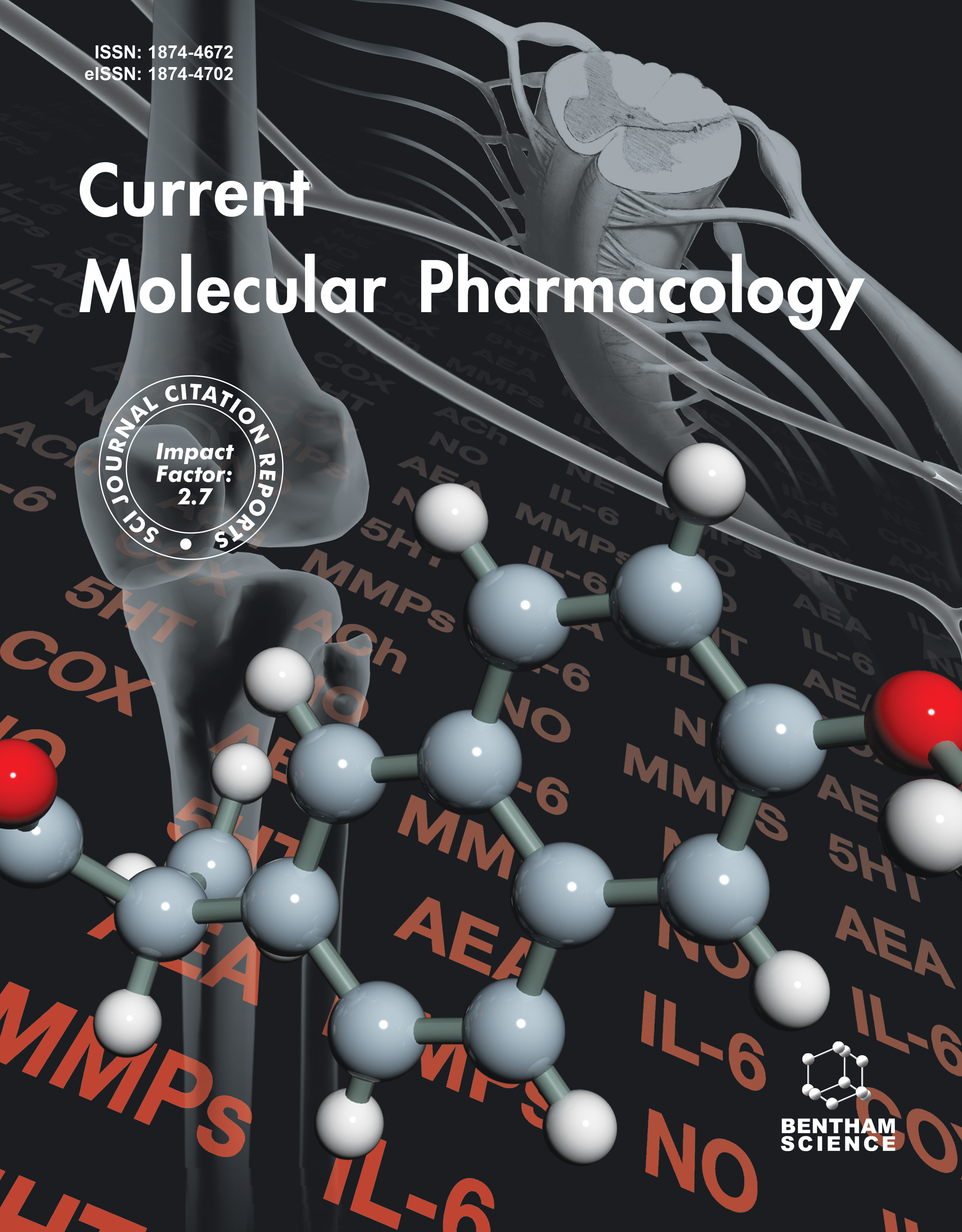-
oa Quercetin Enhances 5-fluorouracil Sensitivity by Regulating the Autophagic Flux and Inducing Drp-1 Mediated Mitochondrial Fragmentation in Colorectal Cancer Cells
- Source: Current Molecular Pharmacology, Volume 17, Issue 1, Jan 2024, e18761429283717
-
- 22 Sep 2023
- 07 Dec 2023
- 12 Mar 2024
Abstract
While chemotherapy treatment demonstrates its initial effectiveness in eliminating the majority of the tumor cell population, nevertheless, most patients relapse and eventually succumb to the disease upon its recurrence. One promising approach is to explore novel, effective chemotherapeutic adjuvants to enhance the sensitivity of cancer cells to conventional chemotherapeutic agents. In the present study, we explored the effect of quercetin on the sensitivity of colorectal cancer (CRC) cells to conventional chemotherapeutic agent 5-fluorouracil (5-FU) and the molecular mechanisms.
MTT assay, colony formation assay and Hoechst staining were performed to investigate the growth inhibition effect of quercetin alone or combined with 5-FU. The expression levels of apoptosis and autophagy-related proteins were assessed by western blotting. Intracellular ROS was detected using DCFH-DA. The change in the mitochondrial membrane potential was measured by a JC-1 probe. The effect of quercetin on mitochondrial morphology was examined using a mitochondrial-specific fluorescence probe, Mito-Tracker red.
The results demonstrated quercetin induced apoptosis and autophagy, as well as imbalanced ROS, decreased mitochondrial membrane potential, and Drp-1-mediated mitochondrial fission in CRC cells. Autophagy blockage with autophagy inhibitor chloroquine (CQ) enhanced quercetin-induced cytotoxicity, indicating that quercetin induced cytoprotective autophagy. Meanwhile, quercetin enhanced the sensitivity of CRC cells to 5-FU via the induction of mitochondrial fragmentation, which could be further enhanced when the quercetin-induced protective autophagy was blocked by CQ.
The findings of the study suggested that quercetin could enhance the sensitivity of CRC cells to conventional agent 5-FU by regulating autophagy and Drp-1-mediated mitochondrial fragmentation. Therefore, quercetin may act as a chemotherapeutic adjuvant. Moreover, the regulation of autophagic flux may be a potential therapeutic strategy for colorectal cancer.


